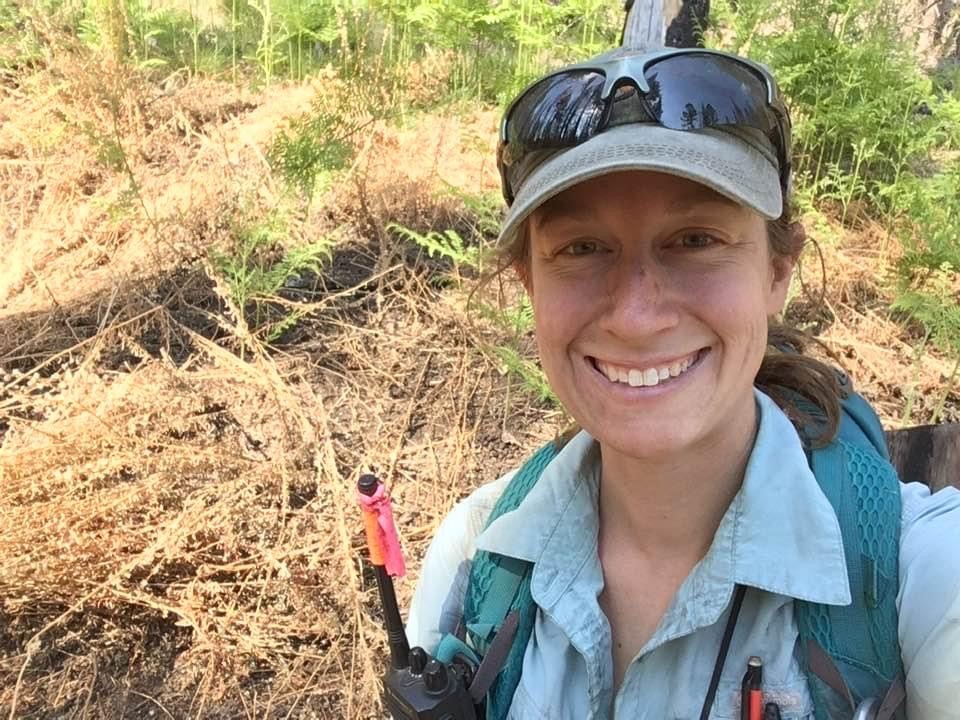Kira Hefty
Biological Scientist

Email: kira.hefty@usda.gov
Phone: (406) 542-3253
Fax: (406) 542-4196
Address:
790 East Beckwith Avenue
Missoula, Montana 59801
Education
Ph.D., Wildlife Conservation (minor in Spatial Analysis and Remote Sensing) 2021. University of Arizona, Tucson.
MSc., Biology 2016. University of Nevada, Reno.
B.S., Biology and Environmental Studies (double major), Ecological Restoration (emphasis), 2011. Northland College, Ashland, Wisconsin.
Background
Kira is a wildlife biologist whose research has focused on wildlife distribution modeling and habitat assessment, including vegetation composition and structure, patterns of biodiversity, and landscape connectivity. With a diverse background working among land managers and within academia, Kira is inspired to produce defensible science that is directly informed by and responsive to conservation and management needs. From forested wetlands to rangelands and high elevation conifer forests, Kira has worked with managers to develop and assess management strategies in regions highly affected by both acute disturbance, such as wildfire, and prolonged landscape change associated with climate change and habitat degradation. She has used fine-scale data collected in the field in combination with remotely sensed imagery to address management challenges on multiple spatial scales and provide data to inform future decisions. In addition to an array of projects that Kira will support, she is excited to apply her knowledge and skills to understand how designated wilderness areas may perform as potential sources of biodiversity and refugia for wildlife species amid ongoing environmental and socioeconomic stressors.
Kira gained experience working in applied biology as an Americorps volunteer, and as an intern and research associate with various non-profit organizations. Kira joined ALWRI from her most recent prior position as a post-doctoral researcher with the Oak Ridge Institute for Science and Education where she researched the impacts of wildfire, bark beetle damage, management strategies, and climate change on the current and future distribution of more than 200 terrestrial wildlife species in the central Sierra Nevada Mountains.
Selected Publications
Zeller, KA, Povak, NA, Manley, P, Flake, SW, Hefty, KL. 2023. Managing for biodiversity: The effects of climate, management, and natural disturbance on wildlife species richness. Diversity and Distributions 00:10.1111/ddi.13782
Hefty, KL, Koprowski, JL. 2021. Multiscale effects of habitat loss and degradation on occurrence and landscape connectivity of a threatened subspecies. Conservation Science and Practice 3: e547.
Hefty, KL, Stewart, KM. 2018. Novel location data reveal spatiotemporal strategies used by a
central-place forager. Journal of Mammalogy 99:333-340.
Hefty, KL, Stewart, KM. 2019. Flexible resource use strategies of a central-place forager experiencing dynamic risk and opportunity. Movement Ecology 7:10.1186/s40462-019-0168-2
Select Professional Presentations
American Fisheries Society and The Wildlife Society 2019, Joint Annual Conference,
Reno, NV, October 2019. Hefty, KL, and Koprowski, JL. Assessing Status and Habitat Use of the Big Cypress Fox Squirrel using Non-Invasive Sampling, Remote Sensing, and Spatial Analysis.
24th Annual Meeting of the Southeastern Bat Diversity Network and 29th Annual Colloquium on the Conservation of Mammals in the Southeastern U.S. 2019, Jacksonville, FL, February 2019. Hefty, KL, and Koprowski, JL. Impacts of a High-Intensity Hurricane on Habitat for the Imperiled Big Cypress Fox Squirrel
International Squirrel Colloquium, 2018, Galway, Ireland, June 2018. Hefty, KL, Koprowski, JL. Habitat Use and Occurrence of Big Cypress Fox Squirrels on Public Land.